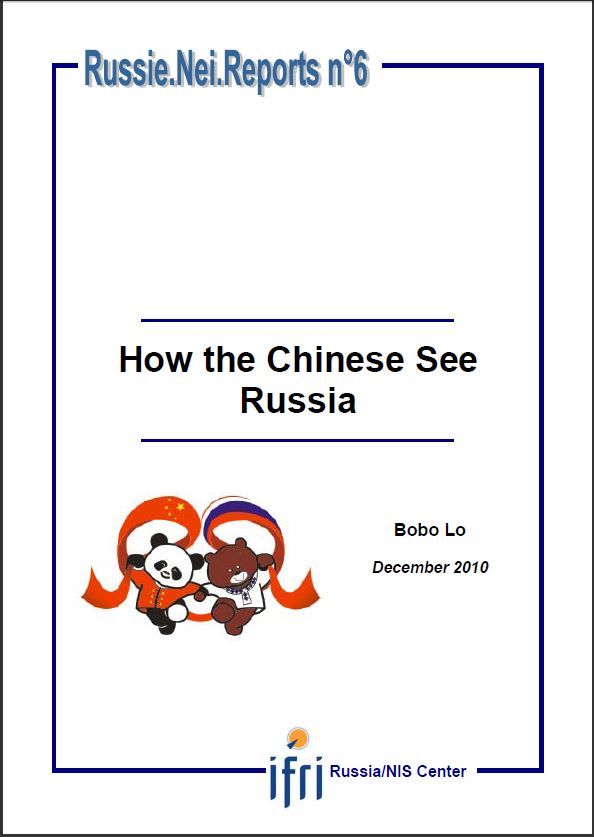How the Chinese See Russia

This essay examines Chinese attitudes toward Russia as a great power, neighbor, partner and competitor.
China is in the midst of one of the most remarkable transformations in history. During this dramatic period, the relationship with Russia has remained something of a sideshow. If the recent narrative of bilateral engagement has been largely positive, then Chinese policy-makers and thinkers nevertheless look to the West for their points of reference and sources of modernization. Russia, which once offered an alternative model, now stands as an object lesson in what not to do. To many Chinese, particularly among the younger generation, it has simply become an irrelevance. But for all its well-documented problems, Russia remains a major international actor with the capacity to affect core Chinese interests. The leadership in Beijing understands that national modernization, the building of a stable neighborhood and China's transformation into a global actor will depend, in some measure at least, on a functional relationship with its largest neighbor. The “Russia factor” in its world-view may have declined, but it has certainly not disappeared.

Available in:
Regions and themes
ISBN / ISSN
Share
Download the full analysis
This page contains only a summary of our work. If you would like to have access to all the information from our research on the subject, you can download the full version in PDF format.
How the Chinese See Russia
Related centers and programs
Discover our other research centers and programsFind out more
Discover all our analysesDeathonomics: The Social, Political, and Economic Costs of War in Russia
The report attempts to outline and examine a truly new phenomenon in Russian society, dubbed “deathonomics”—the making of a mercenary army against the backdrop of the Kremlin’s war in Ukraine, eventually replacing both the Soviet (conscript) and early new Russian (contract) armies. It notes that, by the end of 2023, this trend had turned the military service into one of the highest-paying professions in the country, something not seen in Russia on such a scale since the late 17th century.
Russia's Asia Strategy: Bolstering the Eagle's Eastern Wing
Among Russia’s strategic priorities, Asia traditionally played a secondary role compared to the West. In the mid-1990s, then Foreign Minister Yevgeny Primakov initiated a rapprochement with China and India. Then, in 2014, deteriorating relations between Russia and the West prompted Moscow to begin its “great pivot to the East”.
Kazakhstan After the Double Shock of 2022: Political, Economic and Military Consequences
The year 2022 represented a dual shock for Kazakhstan. In January, the country faced its most severe political crisis since independence, followed in February by Russia’s full-scale invasion of Ukraine, which cast uncertainty over the borders of post-Soviet states. These consecutive crises profoundly shaped Kazakhstan’s domestic and foreign policy.

How the Russian Army Changed its Concept of War, 1993-2022
The traditional and high-intensity war that has occurred in Ukraine since Russia decided to invade raises a key issue: did post-soviet Russian strategic thought really prepare Russia for waging this war?











